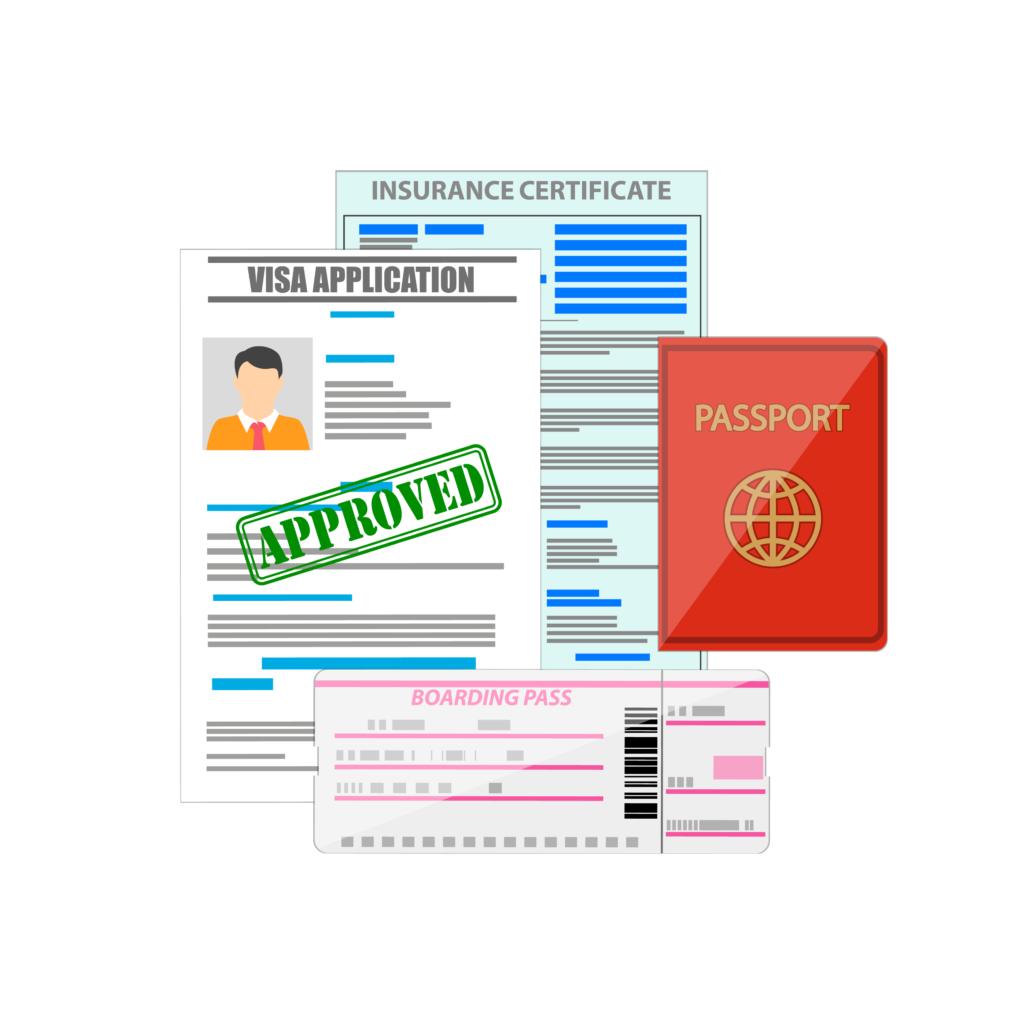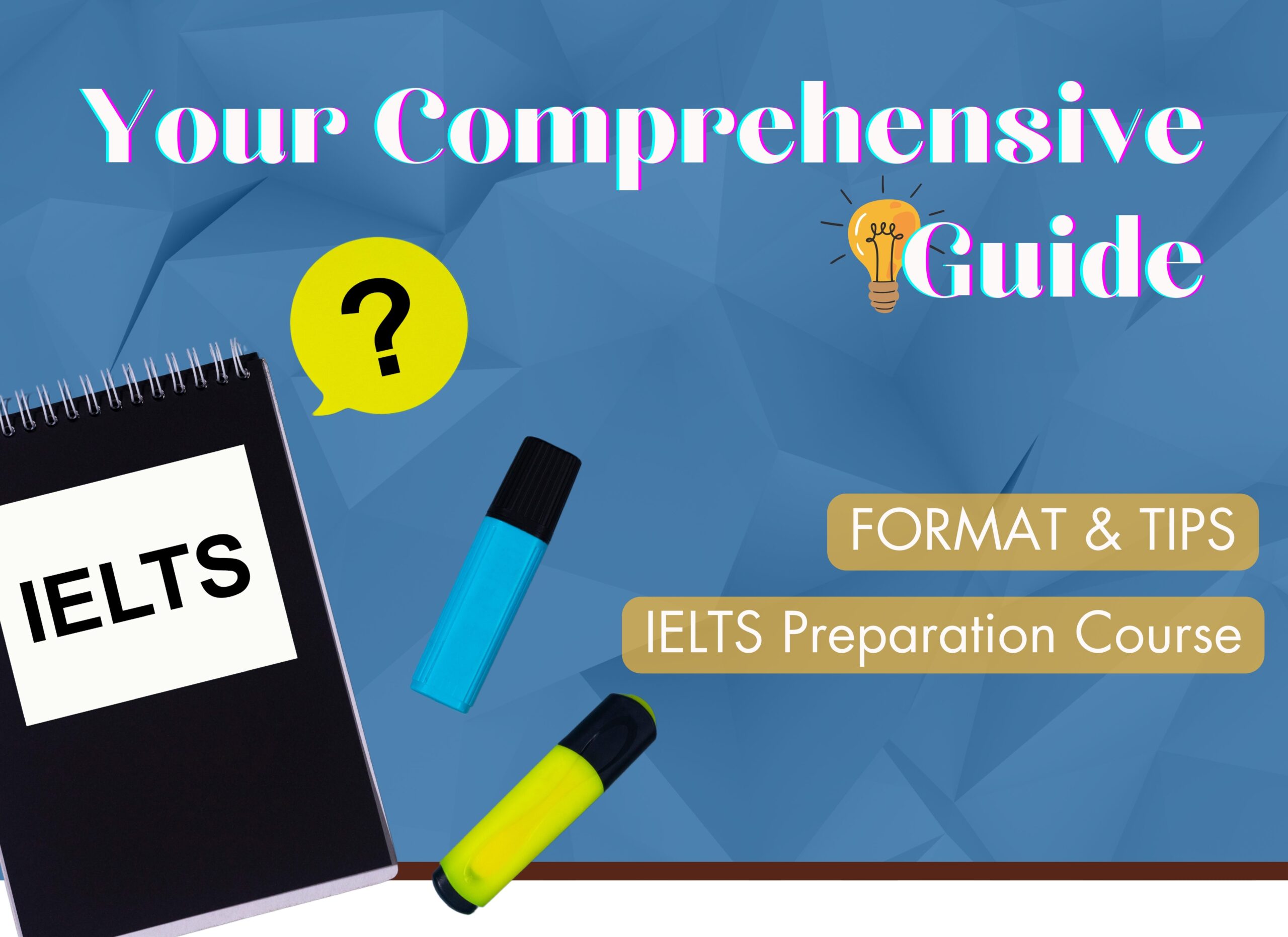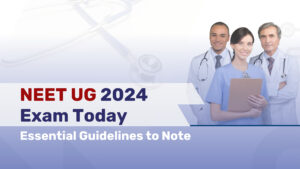IELTS stands for the International English Language Testing System. It is a standardized test designed to assess the English language proficiency of non-native English speakers.
The IELTS test is widely acknowledged and embraced by universities, employers, and immigration authorities in English-speaking nations as a gauge of an individual’s proficiency in English communication. Co-owned by the British Council, IDP IELTS, and Cambridge University Press & Assessment, this assessment comprehensively evaluates four language skills:
- Listening: Appraising the capacity to comprehend spoken English across diverse contexts, encompassing conversations, monologues, and discussions.
- Reading: Gauging the proficiency to understand and interpret information from a variety of written sources, such as articles, journals, and newspapers.
- Writing: Evaluating the ability to express ideas clearly and coherently. The writing section includes tasks like describing a graph or table and responding to an argument.
- Speaking: Assessing the aptitude for verbal communication in English, the speaking test involves a face-to-face interview with an examiner and includes tasks like introducing oneself, discussing specific topics, and expressing opinions.
IELTS SCORES
IELTS scores are reported on a scale from 0 to 9, with each skill (Listening, Reading, Writing, and Speaking) receiving an individual band score. The overall band score is an average of the four individual scores.
IELTS offers two types of tests: Academic and General Training
- University Admissions: Many universities and colleges in English-speaking countries require IELTS scores as part of the admissions process for international students.
- Work: Some employers may require IELTS scores, especially in professions where effective communication in English is crucial.
- Immigration: Immigration authorities in certain countries may use IELTS scores to assess language proficiency for visa applications.
Why is the IELTS Score Important?






IELTS scores serve as a crucial factor in enabling global mobility, ensuring individuals possess the requisite English language proficiency to thrive in their academic and professional endeavors within English-speaking settings.
Minimum IELTS score prerequisites for enrollment in undergraduate and postgraduate programs can significantly differ based on the university, country, and the particular field of study. Varied institutions and programs might impose distinct language proficiency criteria. It is essential to review the precise admission prerequisites of the university and program of your choice.
However, as a general guideline:
- For Bachelor’s Programs:
- Many universities require an overall IELTS band score of 6.0 to 6.5 for undergraduate admissions.
- Some competitive programs or institutions may have higher requirements, often in the range of 6.5 to 7.0.
- For Master’s Programs:
- Master’s programs typically require a higher IELTS score compared to bachelor’s programs.
- A common requirement for master’s admissions is an overall IELTS band score of 6.5 to 7.0.
- More competitive programs or universities may set higher language proficiency standards, often in the range of 7.0 to 8.0.
IELTS : WHAT TO EXPECT (FORMAT & TIPS)
LISTENING TEST
Duration: 30 minutes
Sections: Four parts (common for IELTS Academic and IELTS General Training)
Listening Occurs Only Once: Absorb the content in one go.
Voice Variety: Encounter diverse voices and native speaker accents.
Sections:
- Everyday Social Context: Two-person conversation (e.g., accommodation discussion).
- Everyday Social Monologue: Solo talk about local facilities or conference arrangements.
- Educational or Training Context: Up to four-person conversation (e.g., tutor and student discussing an assignment).
- Formal Talk: A university lecture.
LISTENING TIPS
Pre-reading: Read section questions before the recording starts.
Look Ahead: Focus on upcoming sections rather than dwelling on the past.
Option Selection: For multiple-choice questions, note that options may appear alphabetically.
Word Limits: Pay attention; exceeding word limits results in zero marks.
Listen for Keywords: Identify key words or synonyms to pinpoint answers. Connect the dots – if the recording mentions “going to the gym and playing tennis,” the answer might be “She is an active person.”
Regular Practice: Familiarize yourself with the format and hone your skills through sample listening tests.
READING TEST
Reading Test Structure: IELTS Academic
Duration: 60 minutes Sections: Three sections, each with a long text.
Text Sources: Real texts from books, magazines, newspapers; general interest academic topics.
Text Variety: Descriptive, factual, discursive, analytical; may include non-verbal materials.
READING TIPS
Practice Variety: Improve performance by reading various English texts.
Pre-Reading Questions: Read questions before passages to guide your reading.
First Pass: Quickly read for a general idea before focusing on details.
Information in Passages: Answers are in the passages; external knowledge not required.
Accurate Spelling: Ensure accurate spelling when copying answers.
Effective Time Management: Manage time well and practice regularly for speed and comprehension improvement.
WRITING TEST: IELTS General Training
Duration: 60 minutes Parts: Two parts with general interest topics.
Task 1: Letter writing (personal, semi-formal, or formal).
Task 2: Essay writing (less formal, more personal).
Weightage: Task 2 contributes twice as much as Task 1 to the Writing score.
WRITING TEST: IELTS Academic Training
Duration: 60 minutes Parts: Two parts.
Task 1: Interpretation of graph, table, chart, or diagram (academic, semi-formal, or neutral).
Task 2: Essay writing (academic, semi-formal, or neutral).
Weightage: Task 2 contributes twice as much as Task 1 to the Writing score.
WRITING TIPS
No Absolute Answers: Focus on effectively conveying information and ideas rather than striving for right or wrong responses.
Question Analysis: Ensure comprehensive coverage of all aspects addressed in the prompts.
Word Limit Adherence: Stay within the specified word count to avoid point deductions.
Original Expression: Utilize your own vocabulary to articulate responses, avoiding direct copying from prompts.
Comprehensive Responses: Structure answers in paragraph form, providing detailed explanations instead of bullet points.
Consistent practice, coupled with feedback, will refine your writing skills and enable efficient time management during the test.
SPEAKING TEST
Format: Short, face-to-face interview lasting 11-14 minutes.
Parts: Consists of three progressively challenging sections.
Section Breakdown
PART 1. Introduction and Familiar Topics: Engage in a brief dialogue covering personal details and common interests.
- General questions about personal interests, daily activities, etc.
- Elaborate your responses with at least one or two sentences to showcase language.
PART 2. Individual Long Turn: Speak on a given topic for 1-2 minutes, followed by a discussion.
- Speak for one to two minutes on a given topic.
- Structure your talk with a clear introduction, main content, and conclusion.
- Utilize key words from the prompt for coherence and clarity.
PART 3. Two-Way Discussion: Delve deeper into abstract topics related to the previous section.
- Address abstract topics related to the previous discussion.
- Support opinions with examples and reasoning.
- Maintain fluency, using filler phrases if necessary, and seek clarification when unsure.
- Employ paraphrasing if encountering difficulty with specific words.
SPEAKING TIPS
Key Strategies:
Verb Tense Variation: Demonstrate proficiency by using different verb tenses and forms in your responses.
Elaboration: Expand answers beyond one or two-word responses to showcase language skills.
Structured Responses: Organize your thoughts with a clear beginning, middle, and end during the individual long turn.
Supportive Arguments: Justify opinions with examples and reasoning, fostering a dynamic discussion.
Effective Time Management: Utilize filler phrases to maintain flow and avoid prolonged pauses.
With diligent preparation and practice, you can confidently navigate the IELTS Speaking test, showcasing your language proficiency.
ADDITIONAL REQUIREMENTS
Field-Specific Language Proficiency Assessments:
Tailored Evaluations: Certain fields, including healthcare, education, or nursing, may mandate specialized language proficiency assessments to gauge candidates’ aptitude. For instance, healthcare professionals might undergo OET (Occupational English Test), while English educators may need to pass TESOL (Teaching English to Speakers of Other Languages).
Benchmark Scores:
Sectional Criteria: Besides the overall IELTS score, educational institutions might stipulate minimum band scores for specific sections like speaking or writing. Even if the overall score meets requirements, it’s crucial to ensure alignment with individual section standards.
Alternate Language Evaluation Options:
Accepted Assessments: Some academic institutions may consider alternative English language proficiency exams, such as TOEFL (Test of English as a Foreign Language), PTE Academic (Pearson Test of English Academic), or Cambridge English assessments. Confirm the approved assessments relevant to your chosen program.
In summary, universities often have varied language prerequisites beyond IELTS, including alternatives like TOEFL or PTE Academic. Certain fields, like healthcare or education, may demand specialized tests. Additionally, specific programs and top ranked universities may enforce higher minimum scores. It’s crucial to thoroughly review each program’s and universities requirements.








